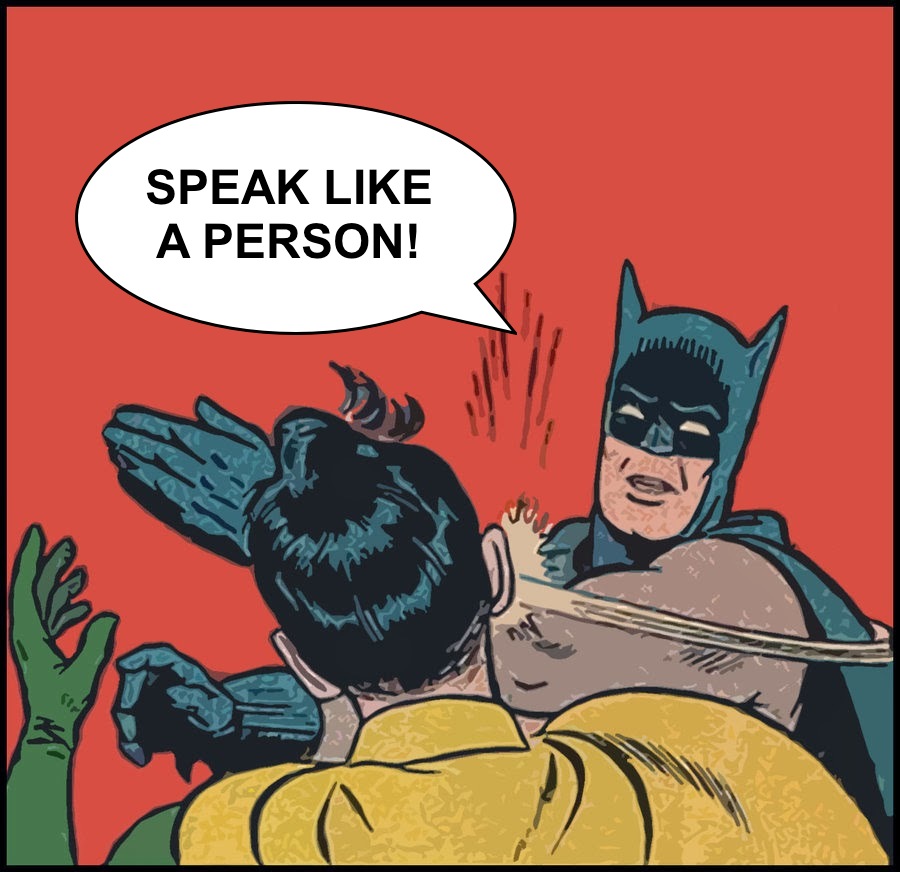
One of our clients has a term for de-jargonizing copy: Speak Like A Person, or SLAP for short. Much of what we do for this client involves SLAP-ing copy written by their employees—taking out $5 words when a nickel one will do, removing over-used terms and terminology, and generally making the language flow, making it sound natural, as if a real person were speaking, not a marketing robot.
Since most copy originates with real people, it seems like this natural flow would be built in, right? But it’s not. Almost everyone needs a little help making their copy sound human. Because every industry, niche, organization, and office develops its own language—its own private jargon—and the longer you’re in it, the harder it is to escape and to remember how strange the language was before you learned it.
Using the lingo of your industry or profession serves many purposes: basic communication, creating a sense of tribe or community, and as evidence of your prowess—in order to succeed, you not only have to walk the walk, you gotta talk the talk. For example, in IT marketing, we talk about innovation, performance, visibility, optimization, and security. In business we talk about customer engagement, maximizing profitability, consumerization, and monetization.
Parlance like this isn’t limited to the professional world. Think about your personal life; in your circle of friends or your family you probably use sayings that others might not understand—historical references, inside jokes, song lyrics, movie or TV lines (“No soup for you!”). You may even speak several “languages”—at home, at work, with your friends. And yet another on social media, where hashtags have gone from being an algorithmic classification to a way to comment on your own life (#societalfail #juskidding #notreally), or text messages where emojis have taken on a life of their own and can wordlessly convey so much. If you’re not aware of this, try texting with a nine year-old girl. 😍✌🏻️🙊💩💯😜
In this age of exploding information, data, and technology, the language, slang, and jargon we use are evolving faster than ever. Slang has always changed with the times—would your 12 year-old be able to have a coherent conversation with your own 12 year-old self back in the 70s/80s/90s? Yes, of course, and also no, not at all. But the language of the professional world is also evolving faster than ever. And it’s hard not to get caught up in that.
When it comes to copy for your business, whether it’s your website, a newsletter, a whitepaper, or any kind of marketing materials, you need to rise above the jargon to connect with your audience and communicate clearly. What’s the best way to do that? Speak like a person. Forget the slang, forget the jargon, just write like you’re talking to someone who doesn’t speak your “language.” Because, odds are, your customers don’t. They just want to know what’s in it for them. In plain English. That’s the universal language of good copy.
